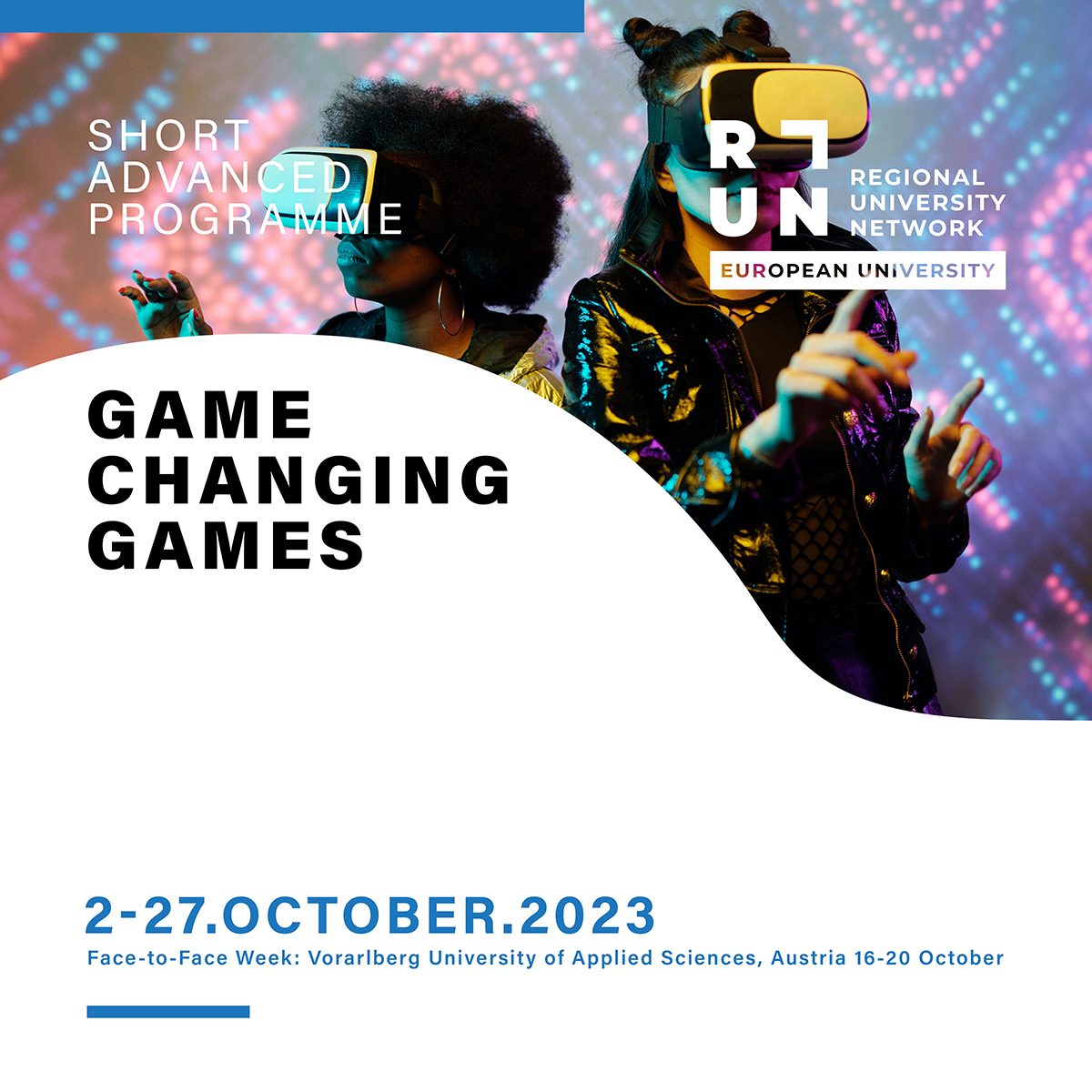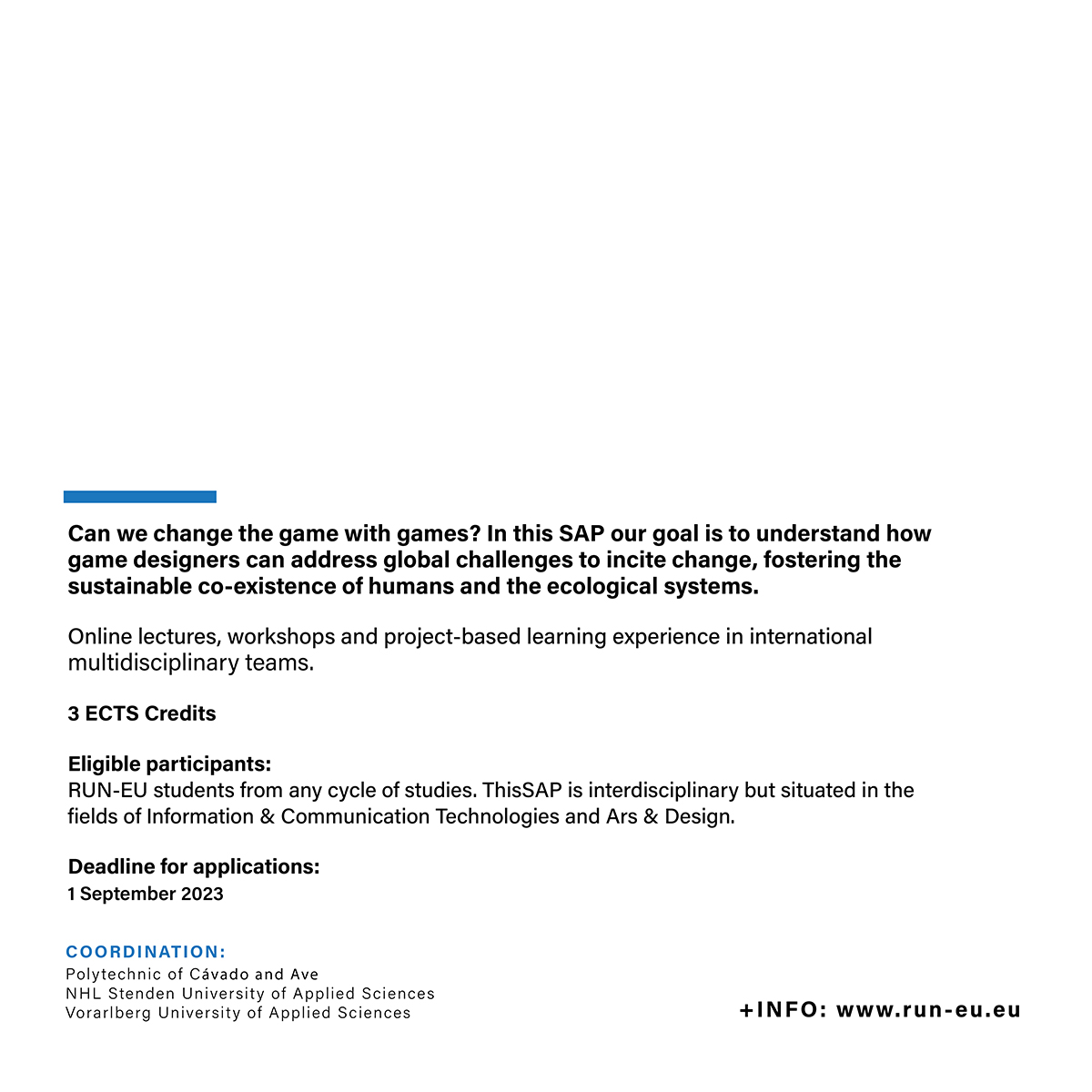SHORT ADVANCED PROGRAMME
Game Changing Games – 3rd edition
2 August 2023
The complexity of global challenges is constantly rising. Can we change the game with games?
Taking this question as a starting point, in this SAP, students will understand how game designers can address these complexities to incite change, fostering the sustainable co-existence of humans and the ecological systems. Creating games that motivate people to engage with these topics in a playful way could be one way of making critical issues intelligible and experienceable.
This SAP is jointly coordinated by the Vorarlberg University of Applied Sciences (FHV), the Polytechnic University of Cávado and Ave (IPCA), and the NHL Stenden University of Applied Sciences (NHL Stenden).
Date
From 2 to 27 October 2023
Face-to-face week
From 16 to 20 October at the Vorarlberg University of Applied Sciences (Austria)
Mode of delivery
Blended
Language of instruction
English
ECTS Credits
3
Academic recognition
To be defined by each higher education institution.
Generally, most students will have this RUN-EU SAP certified in their diploma supplement, as a minimal condition
Eligible participants
RUN-EU students from any cycle of studies. This SAP is interdisciplinary but situated in the fields of Information & Communication Technologies and Arts & Design.


Learning outcomes
At the end of this Short Advanced Programme, students will be able to:
- know crucial concepts and approaches of game design, theoretical approaches and indices of ecological, social and economic sustainability
- be capable of developing and prototypically realising a concept focusing on future challenges (eg climate change, social segregation, digital divide) using games as a medium or creating playful experience(s)
- work in multidisciplinary and multicultural teams
- communicate solutions for societal real problems and challenges that demand innovation and various skills
How to apply
Fill in the application form
Deadline for applications
1 September 2023
Selection criteria
Motivation, learning objectives and a broad representation of subject areas and balanced participation of RUN-EU member institutions.
Maximum number of students: 30.
To be able to better discuss this topic, students need to understand:
- Game cultures
- Dimensions of sustainability
- Best practices for project presentations
- Playful methods in future design (eg speculative design)
- Formal and dramatic elements of games
- Games as systems, economics of games
- Approaches to and methods of game design (playcentric approach)
- Community-centred design
- Designing digital games, urban games, social impact games, serious games, mixed reality games, alternate reality games
- Interaction design in games
- Design and implementation of social interaction in games
- Game content and design considerations to evoke motivation
- Creation of playful elements in immersive environments and affective infrastructures (eg for exhibitions and/or in the museum context)
- Motivation to play vs motivation to change beliefs, attitudes, and behaviours
- Storytelling, dramaturgy and visual design of games
Coordination
FHV, Austria
IPCA, Portugal
NHL Stenden, The Netherlands
Contact gestaltung@fhv.at if you have any further questions.